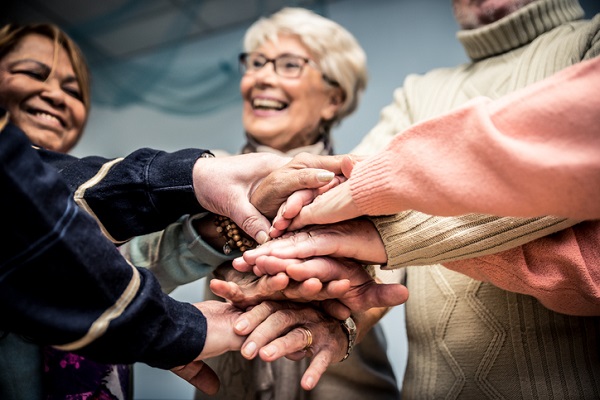A 2017 poll found that 41% of Canadians were at “high risk” for mental illness, up from 35% in 2016 (Ipsos, 2017). While a one-year increase of 6% might seem daunting, it may also be cause for optimism. As noted by Ipsos Public Affairs VP Jennifer Mcleod Macy, the updated figure could reflect a growing tendency to recognize and disclose mental health disorders (Chai, 2017).
With Canadians reporting more experiences of stress, depression, and suicidal ideations, continued mental health awareness is critically important. Spreading awareness helps those living with mental issues overcome stigma and seek the strategies and services they need.
On May 9th, Rhodes Wellness College will be hosting Rhodes to Mental Health, an informative and interactive evening to promote mental health awareness. The event combines speakers and workshops to help attendees better understand mental illness and face its challenges.
Here is a closer look at our Rhodes to Mental Health event, and how Rhodes Wellness College is helping spread awareness regarding mental health.
Rhodes Fosters Opportunities for Sharing
A 2008 study found that only 50% of Canadians would disclose a mental illness to family and friends, compared to 72% and 68% who would discuss cancer and diabetes respectively (Canadian Medical Association, 2008). Overcoming mental health stigma means empowering people to share their experiences, creating platforms to discuss symptoms, coping strategies, and treatment services. In a poll conducted after an anti-stigma summit, 65% of the student audience said speakers with lived experience were their favourite part of the event (Mental Health Commission of Canada, 2014).

Sharing experiences can be very empowering
Our wellness college is committed to these sharing opportunities, fostering safe and constructive environments to discuss mental health. In the Personal Story section of our Rhodes to Mental Health event, Ji-Youn Kim will share her experience of childhood trauma and PTSD, exploring the complications of mental health in vulnerable youth. Expanding on the importance of sharing and understanding, Instructor Mark Keith will examine important theories and statistics on achieving mental wellbeing. Throughout the evening, attendees will also be encouraged to ask questions and share their own mental health challenges.
Our Wellness College Teaches Key Coping Strategies
An estimated 63% of millenials are at ‘high risk’ of mental illness (Ipsos, 2017). This highlights the importance of long-term coping strategies amid the daily pressures of modern life, be it relationships, school, or work. While millenials might be most vulnerable, personal coping tools are an essential part of mental health management at all ages. Overall, 66% of Canadians reported feeling they “could not cope with things” due to stress (Ipsos, 2017). Along with treatment services, personal coping strategies are a crucial outcome of greater mental health awareness.

Coping strategies are essential for approaching mental health challenges
In the third section of Rhodes to Wellness, attendees will learn personal tools to meet their mental health challenges. This section is in keeping with Rhodes’ mission to provide hands-on experience for students looking toward a counsellor therapist career. The evening’s workshop will focus on Dialectical Behavior Therapy (DBT), a psychotherapy tool that helps manage emotions and regulate mental health.
Rhodes Wellness College Provides Additional Mental Health Services
To complement personal coping methods, mental health services are a crucial step toward mental wellbeing. With increased awareness across a variety of mental health disorders, Canadians are in greater need of effective mental health services. Of the 4.9 million Canadians that required mental health services in 2017, approximately 6,000 felt their need was unmet, and 1 million felt it was only partially met (Statistics Canada, 2017).
Pairing students with professionals, our Rhodes Counselling Center provides effective and affordable mental health services in the Vancouver community throughout the year. With 46% of low-income Canadians in the ‘high risk’ bracket for mental illness (Ipsos, 2017), accessible mental health services like ours have never been more important. Our May 9 event will conclude with group breakout sessions, introducing Rhodes Counselling Centre and the services it offers. These sessions will consolidate the evening’s lessons, and help attendees devise practical measures for greater mental wellbeing.
Would you like to become a counsellor in Vancouver?
Discover how Rhodes Wellness College can help you prepare for this rewarding career.
Sources
Canadian Medical Association (August 2008). 8th Annual National Report Card on Health Care. Retrieved from: http://www.bc-psychologist.com/downloads/other/National_Report_Card_EN.pdf
Chai, C. (2017, May 2). Why more Canadian millenials than ever are at ‘high risk’ of mental health issues. Retrieved from Global News: https://globalnews.ca/news/3417600/why-more-canadian-millennials-than-ever-are-at-high-risk-of-mental-health-issues/
Ipsos. (2017). Public Perspectives: 3rd Annual Canadian Mental Health Checkup. Retrieved from: https://www.ipsos.com/sites/default/files/2017-08/IpsosPA_PublicPerspectives_CA_April%202017%20Mental%20Health.pdf
Mental Health Commission of Canada (2012). Changing Directions, Challenging Live: The Mental Health Strategy for Canada. Retrieved from: https://www.mentalhealthcommission.ca/sites/default/files/MHStrategy_Strategy_ENG_0_1.pdf
Statistics Canada. (2017, May 11). Accessing Mental Health Care in Canada. Retrieved from: http://www.statcan.gc.ca/pub/11-627-m/11-627-m2017019-eng.htm










